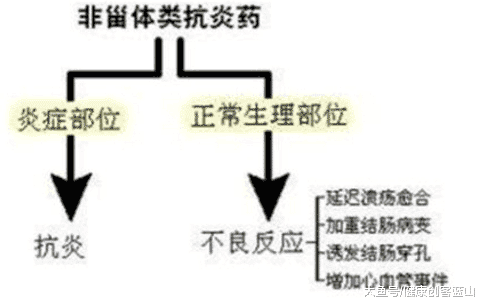对肩颈腰背痛,欧米茄-3脂肪酸与普通抗炎止痛药同等或更有效
Omega-3 Fatty Acids Equal or More Effective than NSAIDs
据估计,5%到10%的美国人使用非甾体类抗炎药来缓解疼痛。虽然非甾体抗炎药对急性和慢性疼痛都有效,但它们也可能引起许多并发症,从头痛和胃溃疡到头晕、便秘、腹泻、心脏病发作和死亡。一项新的研究表明,在鱼油中发现的omega-3脂肪酸在治疗疼痛方面可能和非甾体抗炎药一样有效,而且不会产生副作用。
非甾体抗炎药的毒副作用包括 头痛和胃溃疡到头晕、便秘、腹泻、心脏病发作和死亡
在这项研究中,科学家评估了250名患有非手术治疗的颈痛或背部疼痛的病人,这些病人服用非甾体抗炎药以减轻疼痛。患者被要求在两周内每天服用2400毫克omega-3补充剂,然后将剂量减少到每天1200毫克。在开始补充药物大约一个月后,研究人员向患者邮寄了一份问卷,要求他们记录自己的疼痛程度、非甾体抗炎药的使用情况,以及这些药物引起的任何副作用。
125名患者返回问卷,平均75天后服用补充剂。78%的人摄入了1200毫克的-3脂肪酸;剩下的继续服用2400毫克。59%的患者表示他们已经停止使用非甾体抗炎药来控制疼痛;60%的人说他们的总体疼痛水平有所改善; 80%的人表示他们对疼痛的改善感到满意。无不良副作用报告。
omega-3脂肪酸在缓解某些类型的颈部和背部疼痛方面与非甾体抗炎药一样有效
正如这项研究的结果所显示的,omega-3脂肪酸在缓解某些类型的颈部和背部疼痛方面与非甾体抗炎药一样有效,如果不是更有效的话,也没有明显的副作用。
omega-3脂肪酸在缓解某些类型的颈部和背部疼痛方面与非甾体抗炎药一样有效
磷虾油,另一种选择
在另一项关于生活质量的研究中,磷虾油中三分之一到二分之一的Omega-3 DHA和EPA显示出的益处大约是标准鱼油中DHA和EPA的两倍。虽然在这项研究中没有使用,但磷脂中的EPA和DHA是磷脂结合的,而不是所有其他的海洋油,其中omega-3是甘油三酸酯结合的。这是解释磷虾油优于含鱼油的标准Omega-3的原因。
背景:非特异性药物的使用是治疗急性和慢性非特异性颈部和背部疼痛的有效方法。严重的并发症,包括胃溃疡、出血、心肌梗死,甚至死亡,都与它们的使用有关。一种副作用更小的替代疗法可以减少炎症反应从而减轻疼痛,这种疗法被认为是鱼油中的omega-3脂肪酸。我们报告了我们在神经外科使用鱼油补充剂减轻疼痛的经验。
方法:从2004年3月到6月,250名被神经外科医生发现有非手术颈或背部疼痛的患者被要求每天服用1200毫克-3脂肪酸(鱼油补充剂中发现的二十碳五烯酸和二十碳六烯酸)。在开始补充后大约1个月发送了一份问卷。
结果:250例患者中,125例平均75天返回鱼油问卷。78%的人服用1200毫克,22%的人服用2400毫克。59%的人停止服用非甾体抗炎药。60%的人说他们的整体疼痛得到了改善,60%的人说他们的关节疼痛得到了改善。80%的人说他们对自己的进步感到满意,88%的人说他们会继续服用鱼油。没有明显的副作用报告。
Omega-3 Fatty Acids Equal or More Effective than NSAIDs
结论:我们的结果反映了其他对照研究,这些研究比较了布洛芬和omega-3脂肪酸在减轻关节炎疼痛方面的效果。omega-3脂肪酸补充剂似乎是治疗非外科手术的颈部或背部疼痛的一种更安全的方法。
资料来源:
OMEGA-3脂肪酸(鱼油)作为一种消炎药:是治疗盘源性疼痛的非甾体类消炎药的替代品
Maroon JC, Bost JW. 外科神经学,2006年4月,65(4):326 - 331。
关键概念:-3鱼油,疼痛,非甾体抗炎药,非甾体抗炎药,非甾体抗炎药,炎症
https://s.click.taobao.com/xJt8MNw
Omega-3 Fatty Acids Equal or More Effective than NSAIDs
Estimates show that between 5 percent and 10 percent of the U.S. population uses non-steroidal anti-inflammatory drugs (NSAIDs) for pain relief. While NSAIDs are effective in treating both acute and chronic pain, they also may cause a myriad of complications, ranging from headaches and stomach ulcers to dizziness, constipation, diarrhea, heart attack and death. A new study indicates that omega-3 fatty acids found in fish oil may be just as effective as NSAIDs in treating pain, without causing side effects.
In this study, scientists evaluated 250 patients who were suffering from nonsurgical neck pain or back pain, and who were taking NSAIDs for pain relief. The patients were asked to take 2,400 milligrams of omega-3 supplements per day for two weeks, and then to reduce the dosage to 1,200 milligrams daily. Approximately one month after starting supplementation, the patients were mailed a questionnaire asking them to document their level of pain, use of NSAIDs, and any side effects caused by the supplements.
One hundred twenty-five patients returned the questionnaire, an average of 75 days after taking the supplements. Seventy-eight percent were taking 1,200 milligrams of omega-3s; the remainder had continued taking 2,400 milligrams. 59 percent of the patients reported they had discontinued using NSAIDs for pain control; 60 percent said their overall pain levels had improved; and 80 percent stated that they were satisfied with the improvement in pain. No adverse side effects were reported.
As the results of this study show, omega-3 fatty acids appear just as effective as NSAIDs, if not more so, in relieving certain kinds of neck and back pain, without significant side effects.
Krill Oil, An Alternative
In separate Quality of Life studies, one-third to 1/2 the dose of Omega-3 DHA and EPA from Krill Oil have demonstrated a benefit approximately 2 times that of the DHA and EPA from standard fish oils. Though not used in this study, the EPA and DHA in Krill oil are phospholipid bound, rather than all other marine oils, where the omega-3's are triglyceride bound. This is proposed as the explanation for the superior pain relief of Krill Oil to standard Omega-3 containing fish oil.
BACKGROUND: The use of NSAID medications is a well-established effective therapy for both acute and chronic nonspecific neck and back pain. Extreme complications, including gastric ulcers, bleeding, myocardial infarction, and even deaths, are associated with their use. An alternative treatment with fewer side effects that also reduces the inflammatory response and thereby reduces pain is believed to be omega-3 EFAs found in fish oil. We report our experience in a neurosurgical practice using fish oil supplements for pain relief.
METHODS: From March to June 2004, 250 patients who had been seen by a neurosurgeon and were found to have nonsurgical neck or back pain were asked to take a total of 1200 mg per day of omega-3 EFAs (eicosapentaenoic acid and decosahexaenoic acid) found in fish oil supplements. A questionnaire was sent approximately 1 month after starting the supplement.
RESULTS: Of the 250 patients, 125 returned the questionnaire at an average of 75 days on fish oil. Seventy-eight percent were taking 1200 mg and 22% were taking 2400 mg of EFAs. Fifty-nine percent discontinued to take their prescription NSAID medications for pain. Sixty percent stated that their overall pain was improved, and 60% stated that their joint pain had improved. Eighty percent stated they were satisfied with their improvement, and 88% stated they would continue to take the fish oil. There were no significant side effects reported.
CONCLUSIONS: Our results mirror other controlled studies that compared ibuprofen and omega-3 EFAs demonstrating equivalent effect in reducing arthritic pain. omega-3 EFA fish oil supplements appear to be a safer alternative to NSAIDs for treatment of nonsurgical neck or back pain in this selective group.
Source:
Maroon JC, Bost JW. Omega-3 fatty acids (fish oil) as an anti-inflammatory: an alternative to nonsteroidal anti-inflammatory drugs for discogenic pain. Surgical Neurology, April 2006;65(4):326-331.
Key concepts: omega-3 fish oil, pain, non-steroidal anti-inflammatory drugs, NSAIDs, inflammation
Omega-3 Fatty Acids Equal or More Effective than NSAIDs http://www.rejuvenation-science.com/research-news/omega-3-fish-oil-1/n-omega-3-pain



.png)
.png)
.png)